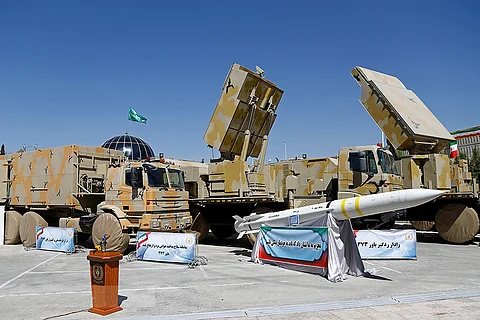

Iran has announced that all air defense systems damaged during last month's 12-day war with Israel have now been fully replaced, signaling Tehran's efforts to rapidly restore its defensive capabilities amid a fragile ceasefire.
Mahmoud Mosavi, a senior official in the Iranian Army's operations division, stated over the weekend that Iran had relied on domestically produced systems and pre-positioned equipment to restore coverage. “Some of our air defenses were damaged, this is not something we can hide,” Mosavi said. “But our colleagues have used domestic resources and replaced them with pre-arranged systems that were stored in suitable locations in order to keep the airspace secure.”
During the initial phase of Israeli strikes beginning on June 13, Iran’s air defense network was severely compromised. According to Iranian officials and military analysts, Israel managed to disable critical components of the system through a coordinated cyber campaign and internal sabotage allegedly carried out by Mossad-linked operatives. This allowed the Israeli Air Force to conduct precision strikes deep into western and central Iran with minimal resistance.
While Iran’s medium- and short-range defenses eventually regained function—especially in response to internally launched Israeli combat and strike drones—the early advantage granted Israel significant tactical momentum.
Prior to the conflict, Iran’s air defense infrastructure consisted of a mix of domestically developed systems and Russian-supplied S-300s. This blend has long been described by analysts as fragmented, though effective in localized defense but not fully integrated.
In the aftermath of the war, Russian President Vladimir Putin confirmed that during negotiations over the Comprehensive Strategic Partnership Treaty, Moscow had offered to help Iran construct an air defense system modeled on Russia’s own. However, Tehran declined the offer, choosing instead to invest further in its indigenous capabilities.
Nonetheless, recent developments suggest a new level of military coordination between Moscow and Tehran. Since the partnership treaty officially came into force last week, open-source flight tracking data has revealed frequent Russian military cargo flights into and out of Tehran. Neither side has publicly confirmed the contents of the flights, but analysts speculate that advanced defense equipment may be involved.
With both Iran and Israel rearming and tensions remaining high, many regional observers believe the ceasefire could collapse before the end of the year. Should hostilities resume, air defense remains Iran’s most urgent strategic priority.